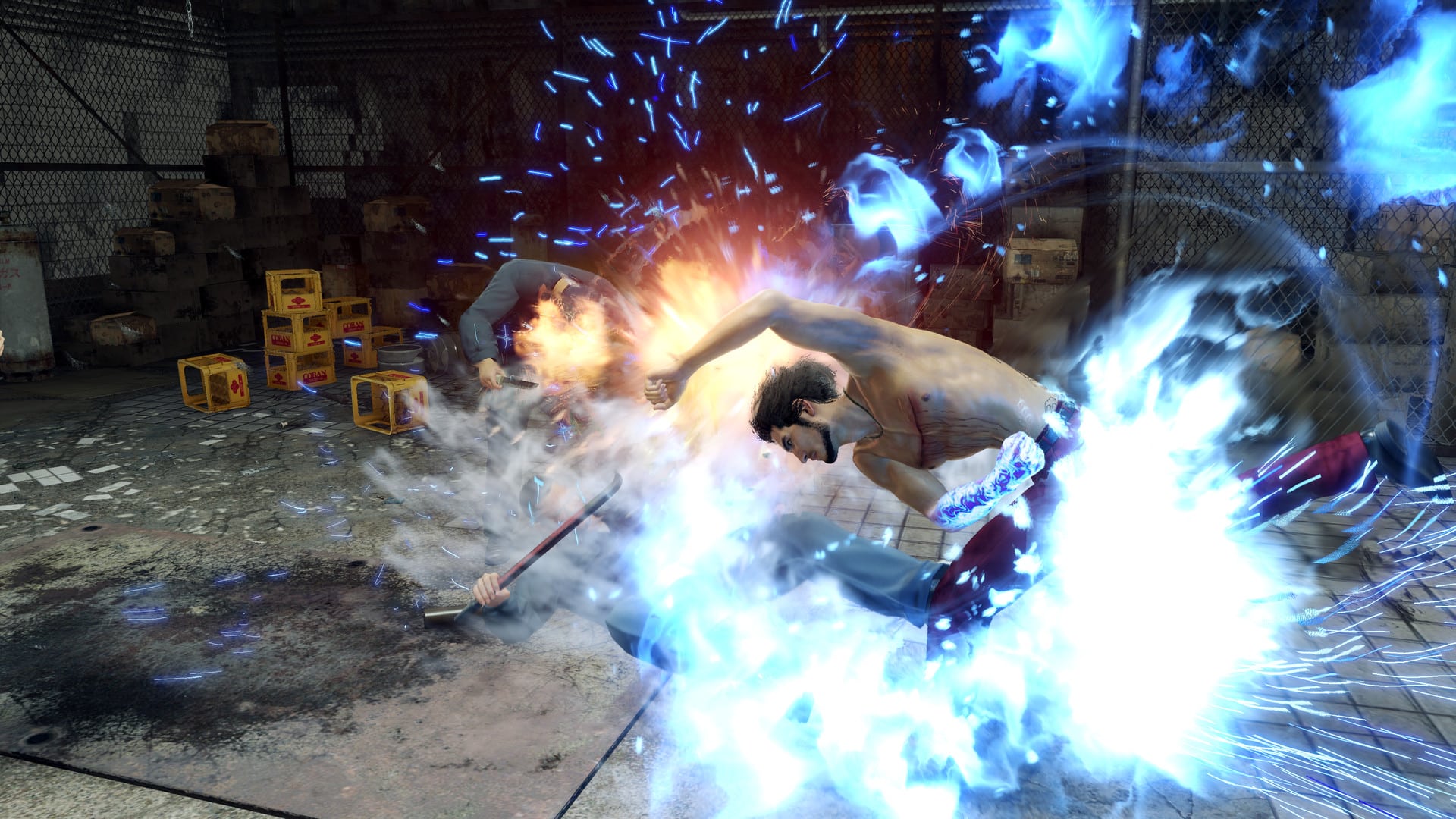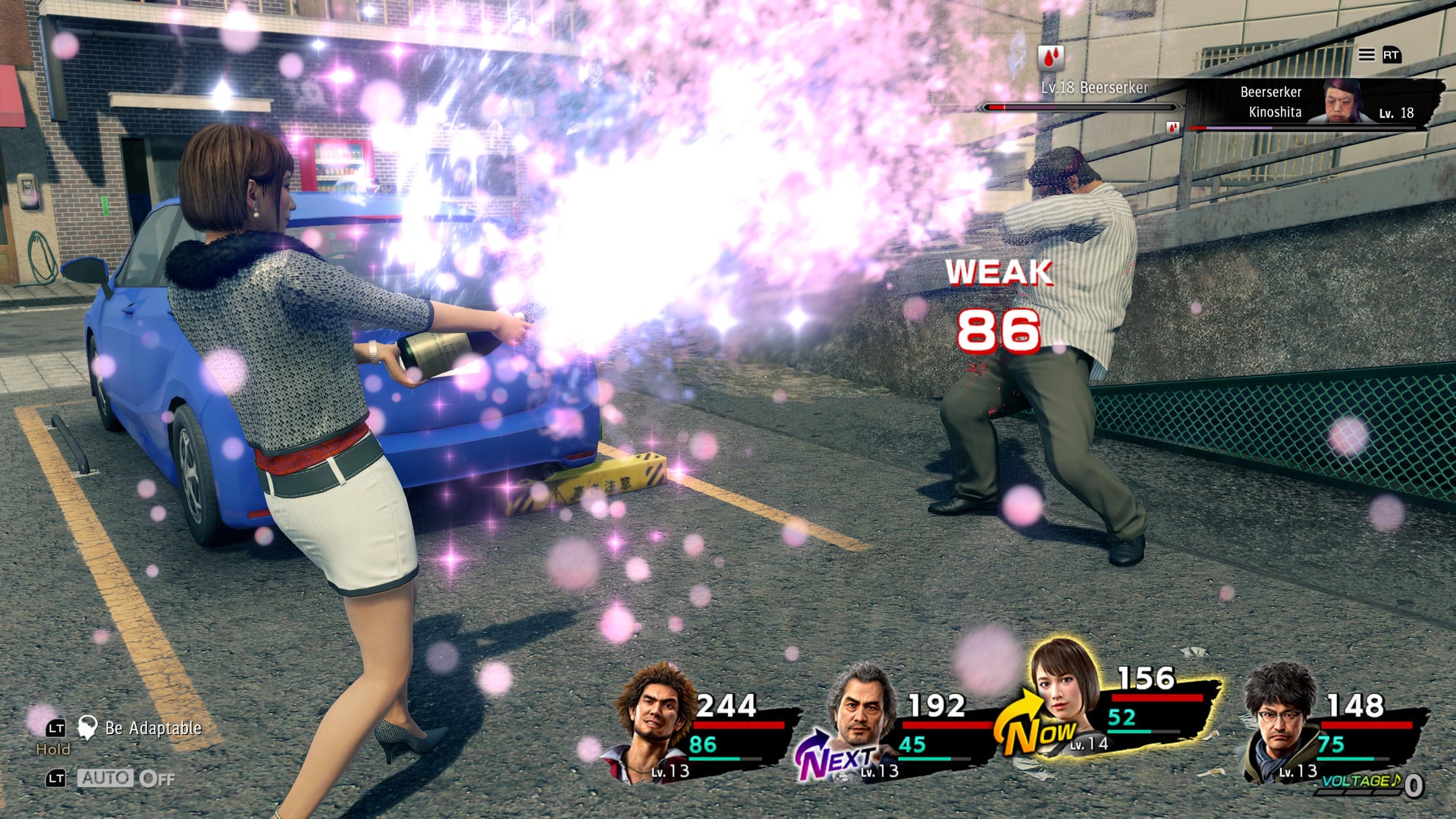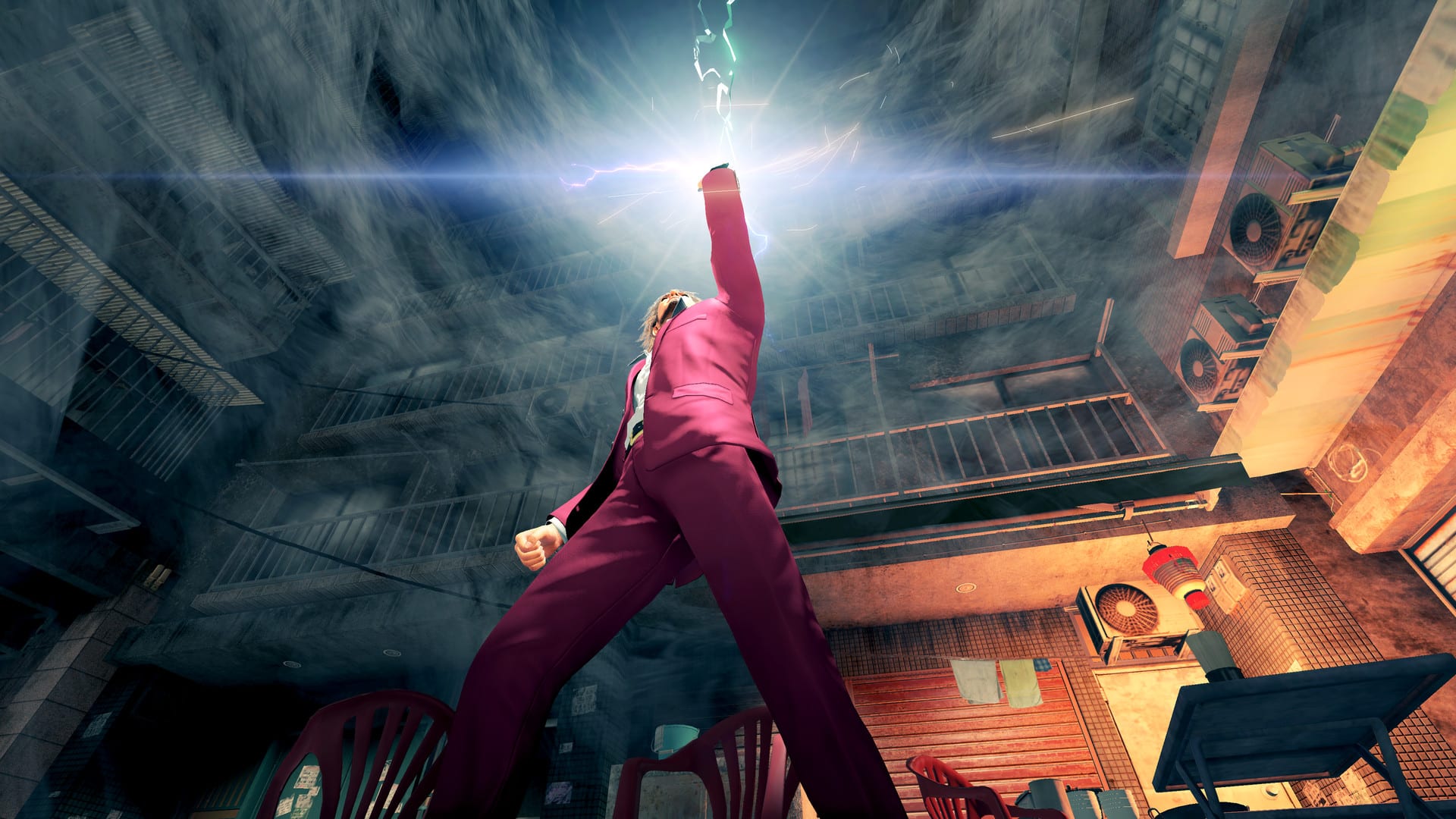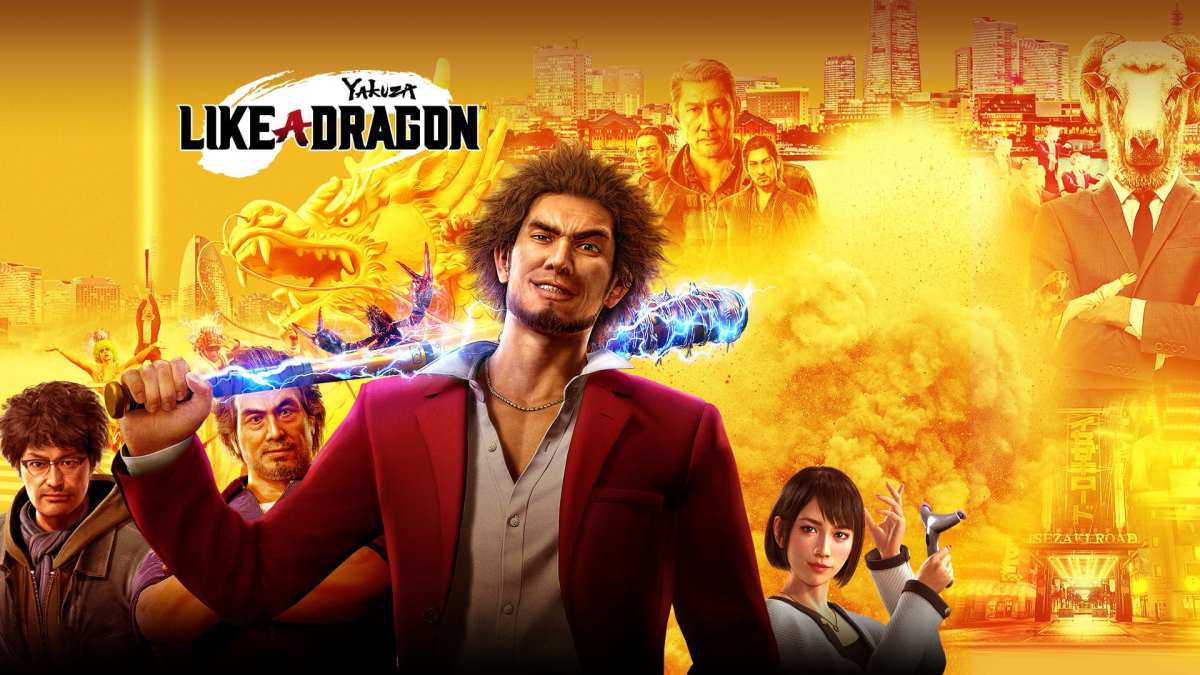Given just how much Yakuza: Like a Dragon tries to do with its story, gameplay, and excellent setting, it’s a miracle that it doesn’t buckle under its own weight. The eighth core entry in Ryu Ga Gotoku Studio’s crime series takes a lot of risks and really mixes up the formula, while still retaining the same core elements that the franchise is known for. One minute, the player has corporate mascot Omelette, a chicken with a real business acumen, shooting down investors’ worries at a corporate shareholder meeting; the next, the player is beating up fire-breathing chefs with an electrified baseball bat, followed by stumbling into a genuinely emotional story reveal. It is a testament to just how expertly the game’s kitchen-sink approach to gameplay and tone works for a majority of the time.
The story centers on Ichiban Kasuga, a low-level criminal with a heart of gold. It’s impossible not to root for the dumb idiot. Very early on in the game, he willingly takes the fall for a crime he didn’t commit, all because of his love and admiration for his boss. This sends him to prison for nearly two decades, and when he’s finally free, the world as he knew it has changed dramatically. It’s up to him to figure out what happened to his boss, while acclimating to the strange new world around him.
Yakuza: Like a Dragon’s crime narrative in the Yokohama district of Isezaki Ijincho slowly zooms out throughout the 40-hour story, transitioning from micro to macro with each passing chapter. Showing how the rot of corruption exists everywhere from the lowest love hotel to the highest political office brings to mind shades of The Wire’s five-season arc. There’s a lot at play here, including some extremely lengthy stretches of cutscenes — seriously, we’re talking Metal Gear-level stuff here. But the story, writing, and performances both in English and Japanese are fantastic across the board, which kept me engrossed the entire time. It’s worth giving yourself over to Yakuza’s tangled web, and there are some great moments of payoff for longtime fans of the series.

While the story is vintage Yakuza, the gameplay in Yakuza: Like a Dragon is a big departure from the norm, setting aside the traditional real-time action in favor of turn-based RPG systems. Ichiban is infatuated with video games, particularly Dragon Quest, so a lot of those iconic RPG staples can be found throughout the game, but with a modern and oftentimes hilarious twist. There’s a bevy of stats, elemental attacks, enemy weaknesses, and status ailments to mentally juggle in each battle. And there are tons of gear to find, buy, and craft, including a bunch that’s specific to each individual job class.
Much like in Final Fantasy V, each character unlocks a slew of different jobs they can assume throughout the game. But instead of traditional RPG tropes like Knight, Black Mage, and Dragoon, think more along the lines of Chef, Barmaid, and Idol. I enjoyed trying out each job and seeing how different combinations of abilities, strengths, and weaknesses would ultimately impact my party composition.
Out on the streets, Ichiban traverses the city like a bull in a china shop. He moves with reckless abandon, overrunning his destination, bumping into pedestrians, and knocking over anything in his path. When you’re out in the city, this actually works really well and helps enforce the “man on a mission” sense of purpose he has — nothing will get in his way, especially if it isn’t bolted to the ground. But when the situation calls for precision, like trying to grab an item off a shelf, interacting with a safe, or just generally navigating any tight interior location, Yakuza: Like a Dragon has a tendency to turn into an aggravating pixel hunt. On their own, these moments are minor annoyances. But once it happens dozens of times, it morphs into death by a thousand cuts.

While running around the city, you’ll find yourself in a whole heap of battles with some of the most hilarious RPG enemies this side of EarthBound. These encounters have such a fantastic and frenetic energy to them and unfold like action-movie street brawls filled with all manner of makeshift weapons, broken furniture, and uncoordinated mayhem. You can spot roving gangs of enemies out in the overworld, and if you want to avoid them, you can simply duck down an alley or turn the other way before they see you. But honestly, I rarely did this. Despite hearing the same rousing battle music a thousand times, I never grew tired of its entrance signaling the beginning of a brawl, and I generally loved watching the action play out.
Though you don’t have control over your party’s movement during combat in Yakuza: Like a Dragon, the rest of your options in battle are pretty standard for a turn-based JRPG — physical attacks, special abilities, items, and incredible-but-expensive summons called down via a smartphone app called Poundmates. You can get away with just cheesing melee attacks for the first half of the game, but the difficulty quickly ramps up in the final few chapters. By the final stretch, I definitely needed to carefully decipher enemy weaknesses and choose the right elements and ailments for each situation, including swapping out party members on the fly.
But as much as I loved the effective sloppiness of the way fights unfolded, they occasionally led to frustration, as the lack of actual control of my party’s movement in battle created some moments where a character would run back and forth, confused with how to navigate the terrain in order to reach the enemy I told them to attack. It’s a minor annoyance, but one that made me wish for more direct control over my crew.

For a lot of the adventure, the game’s pace is in your hands. Yakuza does an incredible job of making you want to stray off the beaten path and pull at the threads of every sidequest and activity you come across. Not only do they reward you with money, gear, and valuable crafting materials, but the optional stories themselves are genuinely great. Be it the absurdity of finding spicy-hot kimchi to help give an elderly woman the kick she needs to cross a busy intersection, the action of beating up thugs who are selling knock-off tchotchkes of a mascot that already feels knock-off on its own, or looking after a lonely persimmon tree that sits outside the window of a sick child, they all do an excellent job of fleshing out the town and its cast of weirdos.
The city map in Yakuza: Like a Dragon isn’t huge in comparison to those of other modern open-world games, but what Isezaki Ijincho lacks in size, it makes up for in density. I really loved taking a breather and just exploring the dozens of businesses scattered throughout the neighborhood. From arcades with fully playable classic Sega games, to secret underground gambling dens, to urban go-kart races, to the wonderful karaoke bar that became my team’s defacto hideout, there’s a great sense of virtual tourism at play here.
You’re encouraged to stop and smell the roses, as all of these activities help boost Ichiban’s personality traits, which open up more dialogue options and strengthen his bond with his fellow party members. In terms of relationship-building and self-growth, I saw a lot of shades of Persona 5 here, in a good way.

However, there were a couple extended moments throughout the campaign where everything seemed to grind to a halt for one reason or another. These included having to navigate the tangle of a subterranean dungeon filled with bland passages and constant enemy encounters for nearly two hours, as well as a sudden plot point that required me to give away a substantial amount of money, forcing me to spend a few hours figuring out the best get-rich-quick scheme. While these two instances really stood out to me, they were ultimately just a pair of speed bumps on an otherwise excellent ride.
My 40 hours in Yakuza: Like a Dragon were a great experience regardless if I was playing on my original Xbox One or seamlessly transitioning my save onto the Xbox Series X for improved resolution, frame rate, and loading times. I loved its characters, humor, and willingness to balance complete absurdity with utter sincerity. And even though the battle system would occasionally trip over its own feet, I still adored watching my crew beat the hell out of some weirdos, grow a little bit closer, and celebrate their victory with karaoke back at the pub.






Published: Nov 17, 2020 03:34 pm